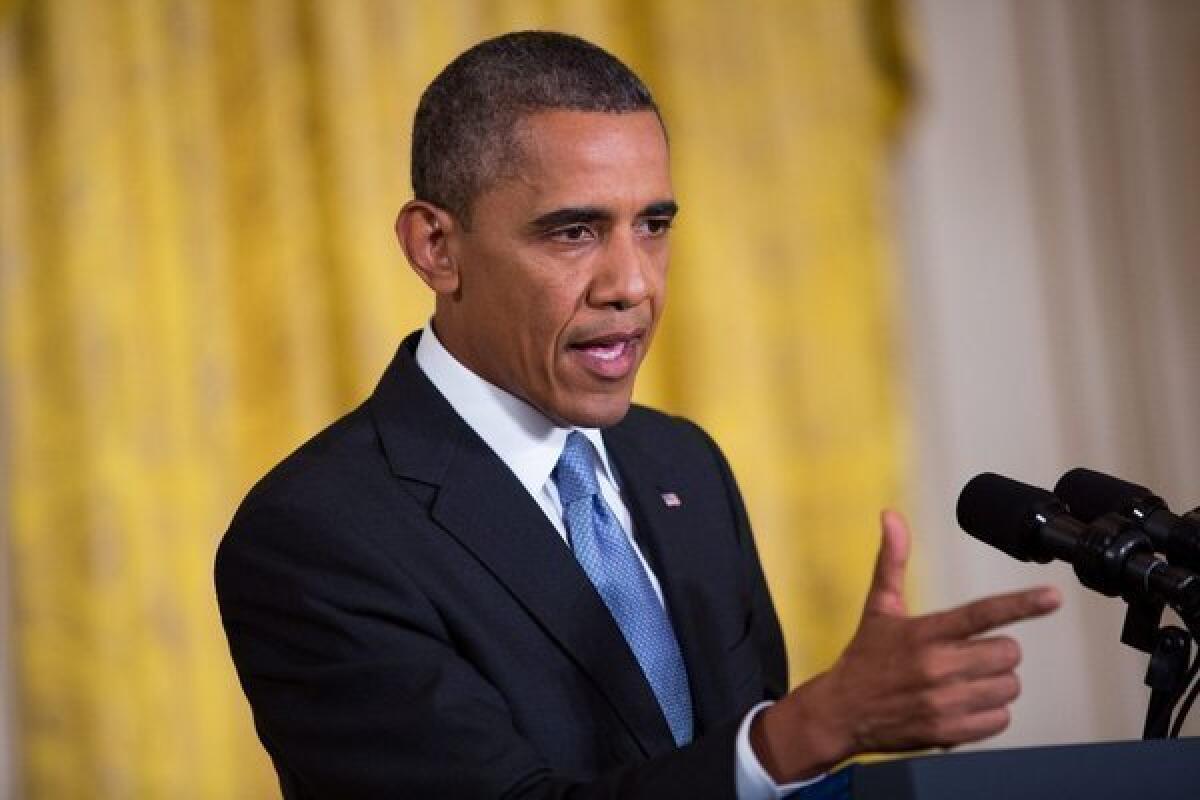How Obama has abused the Patriot Act

On Aug. 9, the Obama administration released a previously secret legal interpretation of the Patriot Act that it used to justify the bulk collection of every American’s phone records. The strained reasoning in the 22-page memo won’t survive long in public light, which is itself one of the strongest arguments for transparency in government. As the late Supreme Court Justice Louis Brandeis wrote, “Sunlight is said to be the best of disinfectants.”
Recent revelations by the Washington Post emphasize the need for greater transparency. The National Security Agency failed to report privacy violations that are serious infringements of constitutional rights. Beyond these blatant violations, the foundation of the programs is itself illegal.
Section 215 of the Patriot Act authorizes the collection of certain business records — in this case, phone records — when there are reasonable grounds to believe that the records are relevant to an authorized investigation into international terrorism. The key legal term is “relevance.”
Under this relevance standard, the administration has collected the details of every call made by every American, even though the overwhelming majority of these calls have nothing to do with terrorism. Since first learning of the program this spring, I have been a vocal critic of such dragnet collection as a gross invasion of privacy and a violation of Section 215.
The administration’s memo begins by acknowledging that its interpretation of the statute is at odds with the plain meaning of “relevance.” It argues there is a “particularized legal meaning” of relevance, but it ultimately concedes that it fails to meet this standard as well.
The legal definition grew out of case law related to grand jury subpoenas and civil discovery. In these areas, courts have adopted a somewhat broader concept of relevance, finding that documents can be relevant not only when they directly bear on the subject matter at hand but also when they could reasonably lead to other information that directly bears on that subject matter. Think of it as second-degree relevance.
The memo correctly points out that Congress was familiar with this legal standard when it adopted the Patriot Act and therefore intentionally invoked this legal interpretation when passing the act. That’s true as far as it goes, but the administration’s bulk-collection program goes far beyond this broader definition of relevance. The phone records of innocent Americans do not relate to terrorism, and they are not reasonably likely to lead to information that relates to terrorism. Put simply, the phone calls we make to our friends, families and business associates are private and have nothing to do with terrorism or the government’s efforts to stop it.
The arguments to the contrary are not compelling. As the administration explains it, all of our phone records are broadly relevant because potential connections between the individual data points are of value. This is where it relies on the tired metaphor of the needle in the haystack, arguing that it needs the haystack to find the terrorism needle.
But our private connections contained in the bulk data are only of value if they in some way relate to terrorism. To the extent they don’t, the government has no right to collect them. The government may need the haystack to find the needle, but gathering the haystack without knowledge that it contains the needle is precisely what the relevance standard and Section 215 are supposed to prevent.
Although the secret FISA court has gone along with this, no public court has ever upheld document collection that is remotely close to the dragnet at issue. The administration concedes as much: “To be sure, the cases that have been decided in these contexts do not involve collection of data on the scale at issue in the telephony metadata collection program, and the purpose for which information was sought in these cases was not as expansive in scope as a nationwide intelligence collection effort designed to identify terrorist threats.”
The administration therefore admits that its bulk collection is unprecedented, but it nonetheless has the audacity to argue that because Congress knew of the more limited civil and criminal concepts of relevance, it should have known it was authorizing bulk collection under the Patriot Act. Why would the existence of a more limited definition put Congress on notice that it was sanctioning a more expansive view?
The administration actually goes further and reasons that Congress essentially sanctioned the abuse of the Patriot Act by failing to stop the administration from abusing it. This last point deserves to be quoted in full:
“Moreover, information concerning the use of Section 215 to collect telephony metadata in bulk was made available to all members of Congress, and Congress reauthorized Section 215 without change after this information was provided. It is significant to the legal analysis of the statute that Congress was on notice of this activity and of the source of its legal authority when the statute was reauthorized.”
As I have said numerous times, I did not know the administration was using the Patriot Act for bulk collection, and neither did a majority of my colleagues. Regardless, the suggestion that the administration can violate the law because Congress failed to object is outrageous. But let them be on notice: I am objecting right now.
Rep. Jim Sensenbrenner (R-Wis.) has been a member of Congress since 1978 and is the former chairman of the House Judiciary Committee. He is the primary author the Patriot Act.
More to Read
A cure for the common opinion
Get thought-provoking perspectives with our weekly newsletter.
You may occasionally receive promotional content from the Los Angeles Times.










